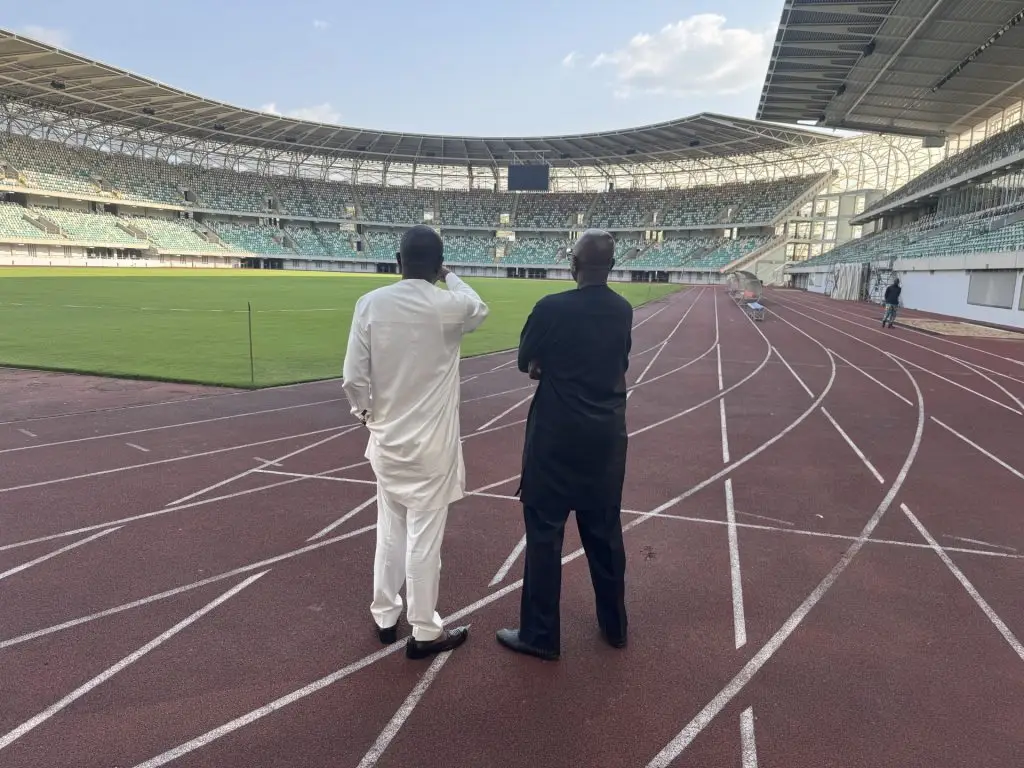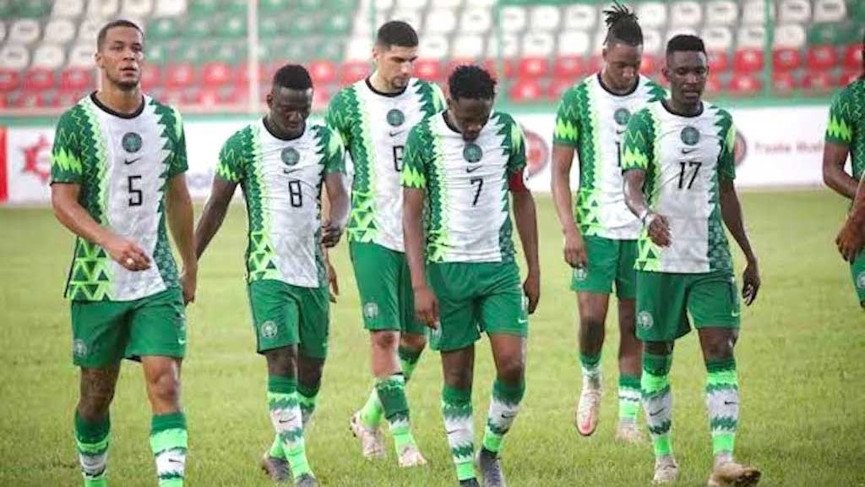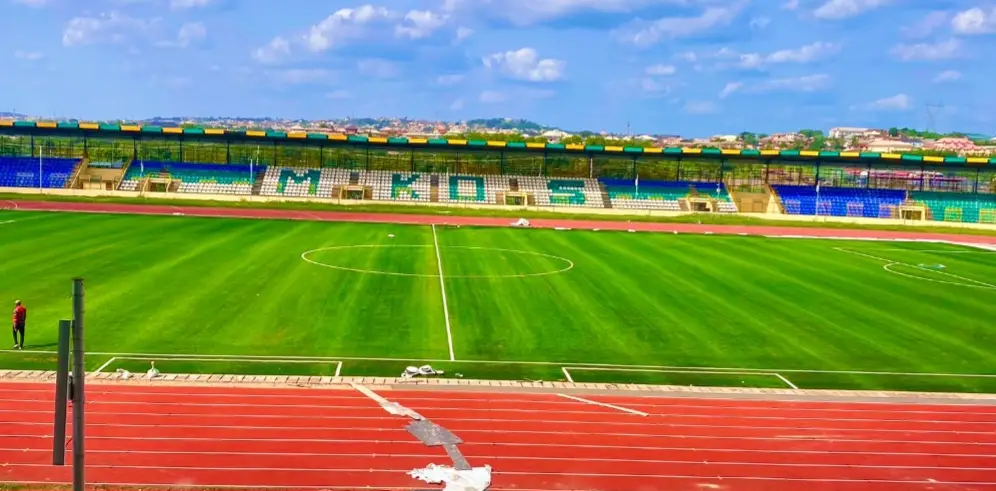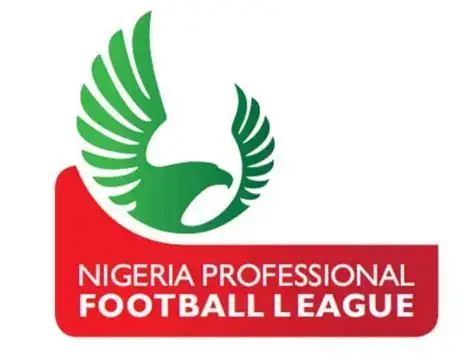On October 23, this week, he would have been 55 years old.
Some 6 years ago ‘Gangling’ was ‘murdered’ by careless family members. The circumstances of the untimely death, on 5thof May 2012, of legendary Nigerian football star, Rashidi Yekini, remain a mystery leaving a lingering sour taste in the mouth. The story of that day, still shrouded in uncertainty, does not make any sense: a group of persons led by a member of his family, accosted him at the gate of his house as he returned from his regular morning football training; in broad daylight and with some neighbours watching the drama from their homes across the street, he was into a waiting car and driven away to an unknown destination. Some two weeks later he was brought back, and deposited in a private hospital, dead. No one was arrested and no one was prosecuted by the Police. That’s how the life of one of the most celebrated football heroes in Nigeria’s history was wasted and nothing happened. The earth did not tremble and the people did not protest. Although the people mourned for a while, life eventually just went on normally as if Rashidi Yekini was a nobody, and how he died did not matter. I hate to admit it (yet it is true) that it is only in Nigeria that a national figure of Rashidi Yekini’s stature would lose his life in such a ‘cheap’ and mysterious way and no proper investigation was ever conducted to find out ‘who done it’. The elements were left to take their revenge. To date, it is only the effort of a few friends that has continued to keep alive the memory of one of the greatest footballers in the history of the game in Nigeria. Rashidi’s story is replicated in the stories of most others that also shone and their lights were extinguished by neglect and forgetfulness by successive custodians of sports administration in Nigeria. The attitude of successive governments to sports is that of a minor irritant that occasionally unites the people during international championships, but consumes resources and injects nothing back into the economy. That’s why, the present government can list 51 priority areas at the inception of the government and sport was not one of them. This week, Rashidi Yekini’s beautiful goals have lit up several social media platforms, and the great Nigerian hero is being remembered and celebrated by his fans in a token effort to keep his memory alive. It is a reality check for all athletes in Nigeria who spend the better part of their youthful life in pursuit of honour and glory not only for self but, most importantly, for the country, and the life after. The argument about whose responsibility it is to honour and remember them, and to cater for their welfare has been on for decades with no end in sight of a resolution. So, successive governments have done nothing, and the athletes have been left to live with a situation that is obviously a very bad advertisement for Nigerian sport, a situation where heroes end up poor, neglected, forgotten, and dead, when they can very easily have become economic contributors, motivators and role models for younger generations. Sport continues to suffer from a lack of enough understanding of what it can offer society and contribute to a country beyond the momentary moments of unity and celebrations. Nollywood, the Nigerian film industry, provides an insight into the possibilities, contributing about 7 billion Dollars annually to the Nigerian economy despite surviving outside of government. Yet, that industry is still at its embryo and its impact pales in comparison to what sports (and football in particular) can offer when fully and properly managed. Unlike Nollywood, sport cannot survive for now without government’s intervention and provision of the enabling conducive-for-business environment. A combination of sports, the general entertainment industry, drawing on the power and passion of the young generation of Nigerians, can become one of Nigeria’s highest economic contributors outside of oil and gas within a few years. The shock is that governments still do not see it. They do not understand how sports to can maximally impact society and make a difference in the lives of young people. Many of us in the sports industry live in the despair of seeing how opportunities are frittering away in this ocean of endless possibilities.
Rashidi Yekini is so big a football personality at the level of his achievements that his birth place and resting place could easily become ‘shrines’ for visitors to come and pay homage. Such a place exists in Vitoria de Setubal in Portugal where he played the best part of his professional football and remains the greatest African football ambassador in the club’s history.
On the eve of the 1994, World Cup Rashidi was the most talked about African football player, with expectations reaching to the skies.
He did not disappoint.
Who would ever forget the effusive celebration of his first World Cup goal for Nigeria during the World Cup, how he screamed his own name after netting Nigeria’s first ever goal at the World Cup? The pictures of that goal and of his celebration are etched in the minds of a global audience of football fans till this day. On this day and in this column, I am using Rashidi Yekini as a point of contact with the Nigerian government for all the sports heroes that served this country through the decades, many of them now buried and forgotten in the archives of history, and many others too, although still alive, languishing in poverty and obscurity, waiting in line for their turn to join the army of forgotten heroes. The treatment meted to sports heroes should be a candle to light up a dark country wasting in the midst of plenty. Nigeria will be great one day if political leaders will do in governance what sports heroes have been doing in sports for the country. What Nigeria needs now are political leadership and leaders with the knowledge and vision of how to go about tapping into this abundant natural human resource that does not require re-inventing the wheel, to impact society for good, forever. There is a ‘hungry’ army of youths waiting to soak up the opportunities. On a larger scale, Nigeria can use sport, in conjunction with the other arts, to birth a new Black Consciousness and Civilisation in the World. I join in the celebration of the life and times of Rashidi Yekini in African football. I am using him to also recall and draw attention to all the other heroes in all sectors of sports in Nigeria that have departed this world after diligently serving sports and the country, and are now forgotten. They remain evergreen and everlasting in our hearts.
They are too numerous to list here:
Mudashiru Lawal, Dan Anyiam, ‘Papingo’ Hudson Jaguar, Fabian Duru, Inuwa Lawal Rigogo, Layiwola Olagbemiro, Olakunle Awesu, Dele Udoh, Musa Dogonyaro, Ken Ilodigwe, Samuel Okwaraji, ‘Thunder’ Tesilimi Balogun, Jide Johnson, Patrick Okala, Yomi Bamiro, ‘Diamond Toe’ Baby Anieke, Peter Anieke, Cyril Asoluka, Ishola Folorunsho, Jumoke Bodunrin, Babayo Shehu, Ronke Akindele, Maman Jay, Yinka Craig, Esbee Oguntolu, Isaac Akioye, Felix Agbonifo, Raheem Adejumo, Lord Rumens, Jerry Ikpeazu, Babatunde Abeki, Patrick Okpomo, Olalekan Salami, J.K. Tandoh, Grema Mohammed, Sunday Dankaro, Isaac Akioye, Batande Na Allah, Alloysius Atuegbu, Tunde Bamidele, Mike Enahoro, and so on…!
Rest peacefully.
Happy 55th birthday, Rashidi Yekini.








Nigerians must incorporate these past stars of Nigerian football, sports and their achievements into our daily lives, such as including them in education, media, hobbies, except in but businesses. Sports and exercise influences a society’s beliefs, values, and attitudes by changing points of views when watching a great World-Cup soccer, or football, or track events, a fitness wrestling video, or watching how break dancing, requires an amazing amount of physical activity to be able to complete a specific skill to achieve the goal of the sport. Sports is only activities that will bring Nigerian societies together and restore love.
Sports Management is the study of planning, supervising and organizing countless sporting activities like international and domestic tournaments for football, hockey, basketball, Tennis, swimming, and quite a lot other sport. The conception of ‘sports management’ has already made its presence felt in the western world. In the United States of America and European countries, the sporting association warmly accepts it. Sports management is a new and emerging concept in Nigeria and has made a good beginning. Nigerian Football Association and the Super Eagles over the year were plagued by lack of professionalism, misuse of power and political influence etc. Most recently things are changing with the introduction of professionalism in Nigerian football, while international recognition of Super Eagles being a force to reckon with and its players are notably world-wide. Glad that formal courses have been introduced in Nigerian Universities to produce potential sports managers who will be exposed to the fundamentals of sports management, sports marketing, advertising and sponsorship issues, spectator management, sports media and event management during their course. University of Nigeria, Nsukka, University of Ibadan, and Zaria were among the first Universities in Nigeria to successfully launch bachelor’s Degree in Sports management in Nigeria.
Nigeria Football Federation (NFF) is also making it compulsory for all the national League and challenge professional clubs to professionally manage their clubs as per NFF written guidelines. With reference to sports like football, basketball, Tennis, athletics, the respective apex bodies are also trying to introduce professionalism. Under the present situation it is clearly evident that the service and expertise of professionally trained sports manager will be keenly felt in different sporting association, clubs and sports management companies for the overall development and management of Nigeria’s sports in the days and months to come. Sports Management Courses in Nigerian Universities’ inspires leadership qualities in individuals and helps them to coach, manage and train sportsmen and women coming from various fields of sporting activity. Benefits of sports management:
The course on sports management in Nigeria should stress upon the following principles:
* Social and ethical importance of sports management
* Sponsorship, marketing and merchandise of sports
* Interrelationship between finance and sports
* Communication with the electronic and print media
* Knowledge about sports law on contracts and drug use
* Sports ethics and sports organization
If the Super-Eagles football is your passion, you do not necessarily have to keep it on the inside track. You get to stay in touch with the activities revolving around your favorite sport and at the same time, use your brains to understand the managerial and administrative part of it. Sports and Football has been a popular career in the West for quite some time, but in Nigeria it has yet to come up in a big way for Africa’s most populous nation, Nigeria.
Scope of sports management:
One can join any Sports Management organization as a sports manager organizing various domestic and foreign tournaments and communicating with the media. One can also be a private manager or agent of well-known players doing public relation work, career development and get commercial endorsement contracts but doing so will energize the economy and raise foreign recognition and foreign currencies. Many private and governmental agencies could license sports managers to supervise sporting activities. Even five-star hotels, resorts in Nigeria can recruit sports managers to administer policy of their gymnasiums and sports centers.
Sports agents and managers:
All successful and well-known players of sport have their own personal managers or agents today. Even upcoming sports persons often employ managers to take care of their career growth. As a sports agent or manager, you will have to keep a track of your clients’ schedules, look after activities such as their career progression, business promotion and even media and public relations. Administrative affairs such as budgeting, finance and other logistics have to be taken care of, often.
Sports Directors:
Many private and government-sponsored sports institutions hire qualified officials to manage their work at various levels. Most of these officials, particularly the senior ones, usually are sports teachers, coaches who have experience in managing sports activities. Therefore, as a sports director, your basic responsibility would be the planning and management of sports activities and events, from time to time.